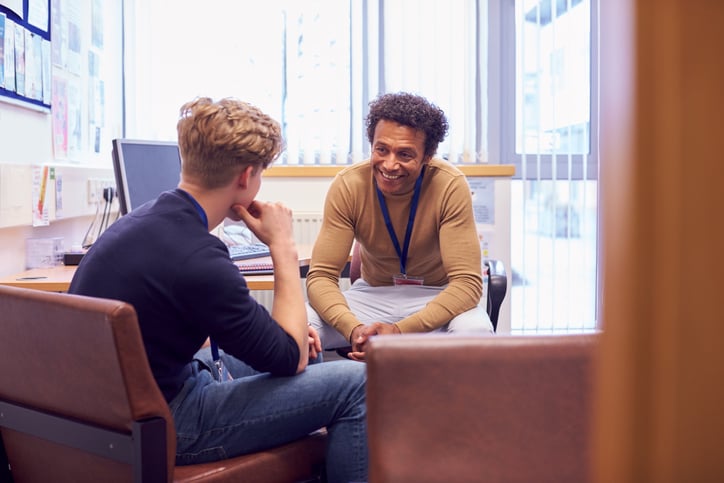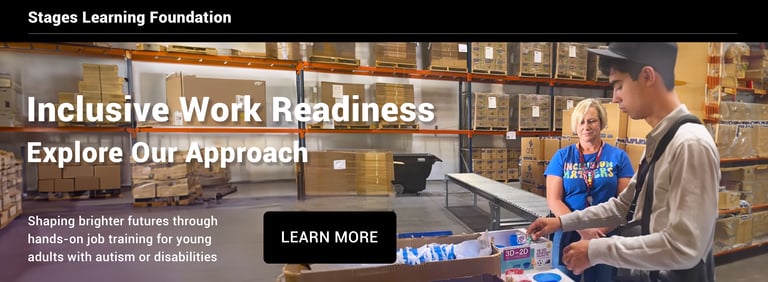A Deeper Dive: What Post-Secondary Employment and Services are Available for Students With Autism?
A growing number of students with autism spectrum disorder (ASD) are attending college after they graduate from high school. However, unfortunately, a high number of these students also leave college without graduating, usually because they do not have the necessary support in place to succeed.
Based on the existing research about the transition to post-secondary education – specifically for students with ASD – there appear to be several important pieces to consider in building these supports.
1. Support for transition should begin in high school
Students with ASD in high school should be provided with education about all of their post-secondary options (e.g., college, work or training, and internship opportunities), as well as support in weighing the pros and cons of each option for themselves, and structured planning for the next step. It’s important that guidance and planning include the academic pieces of transitioning from high school to college (e.g., how to study, how to manage a schedule), but it also needs to include life-skills training (e.g., how to do laundry, how to choose what to eat and where for each meal, hygiene) and social skills support (e.g., how to make friends in a less structured setting like college).
2. Support and guidance should be ongoing
Most students will need support as they encounter each new or challenging situation, and guidance or coaching should be provided throughout. Studies that have tried a more one-and-done approach to teaching students how to manage the stressors and changes that come with post-secondary education have not been successful at improving the outcomes for students with ASD.
3. Students do better with structured peer mentoring
Students in college want to hear from their peers about how to succeed - and peers are also best equipped to do so. This might include things like how/why to join a fraternity or sorority or unwritten rules about dating. It might also include academic guidance like why to visit a professor during their office hours or where to find extra support and how to know when you need it. Students transitioning to college often describe that finding a peer support network is one of the most difficult tasks they encounter, so when schools build in this structure as a planned component of their transition services, neurodivergent students do remarkably better.

4. Disability services staff at the university need to be educated about ASD specifically
The structured support and mentoring needed for students with ASD are unique and different from those needed for other disabilities at the post-secondary level. Most research finds that when staff at the university who will interact with the student with ASD are educated in how to engage that student effectively, the student is more successful.
Professional development specifically designed for university staff to effectively support autistic students, such as programs offered by Landmark College, can be especially useful in helping support staff get up to speed and be more effective.
5. Support should be individualized
Although this seems like a straightforward recommendation, it is unfortunately not universally applied. Each student with ASD will need different support at different times and at differing intensities. At frequent intervals throughout the post-secondary process (e.g., the beginning of the semester, mid-semester, end of the semester), each student’s needs should be thoroughly assessed and supports adjusted to meet the student as they adjust and advance over their years in post-secondary education.
It’s additionally important that post-secondary resources for students with ASD take a multipronged approach to intervention and support. Specifically, only providing academic support will not be sufficient, but rather the whole person with ASD needs to be supported through the transition from high school to college.
6. Mental health support
The transition from one phase of life to another is stressful in new ways as compared to other life transitions. Successful transition programs will need to establish a plan with each student to support their mental health and well-being, including ongoing monitoring for new stressful events that occur along the way. Mental health support may take the form of professionals who provide information and guidance about the transition process, as well as family and friend support who guide the student directly, and at times collaborate with the school to meet the individual’s needs.
7. Support regarding core symptoms of ASD
Many support programs include guidance regarding accommodations in the post-secondary setting. This might include helping the student engage with the office of disability services to access formal accommodations in the classroom (e.g., support for note-writing or longer time on tests). Knowing the subtleties of peer interaction in a post-secondary setting is also a challenging task, which may benefit from formalized instruction from social skills groups or more informal instruction from something like the peer mentoring described above.
Students with ASD often demonstrate difficulties with specific executive functioning skills as well, which can routinely interfere with academic success. Explicit/formal instruction in accommodations for these areas may be needed for some students to achieve success in a post-secondary setting. Such instruction may include making a plan for how/when/where to study for exams, making a schedule for when assignments from a variety of classes need to be completed and turned in, and how to plan leisure activities to fit into studying, attending classes, and homework completion.

8. Diagnosis disclosure
The question of whether and when to disclose a diagnosis of ASD is often difficult to decide, particularly in a new setting with new peers. Although research has shown that other students are more understanding of others’ idiosyncratic behaviors when they are aware of a student’s ASD diagnosis, it can often feel anxiety-provoking to think about when to disclose and to whom. Student success is increased when they are provided with guidance about the disclosure process.
9. Life-skills training
One of the concerns of parents and students with ASD during the transition to college is the need for independent living and the development of life skills. These adaptive skills difficulties are a hallmark of ASD and often reflect the executive functioning difficulties with self-monitoring and self-awareness. Therefore, they need to be explicitly taught, and individualized to the student.
Some students have difficulty remembering the regular schedule of daily routines, like showering and brushing their teeth, and they benefit from structured schedules and reminders or alarms. Some students have difficulty noticing when clothes need to be washed or rooms need to be cleaned and may benefit from weekly checklists and reminders to complete activities that may not readily come into their minds.

Creating and implementing an intentional plan to cover all these areas will take time, but once in place, these support services can make all the difference in post-secondary outcomes for students with autism.
We hope you enjoyed the information in this article. STAGES® Learning also offers free downloadable resources to support teaching and learning with individuals with autism. Start with our free Picture Noun Cards and see our collection of other downloadable resources here!

Abby Peskin
Dr. Abby Peskin is a child psychologist from Miami, with a training emphasis in the treatment of disruptive behavior disorders in young children, focusing on intervention and assessment for Autism Spectrum Disorder. Her clinical background consists of specialized training in the diagnosis and treatment of both Autism and anxiety, including group, individual, and school-based treatment. She was drawn to child psychology because she genuinely loves working with children, and nothing delights her more than watching parents and their children get closer, watching their relationship get less stressful, and seeing parents increase their confidence and realize what amazing parents they can be.





